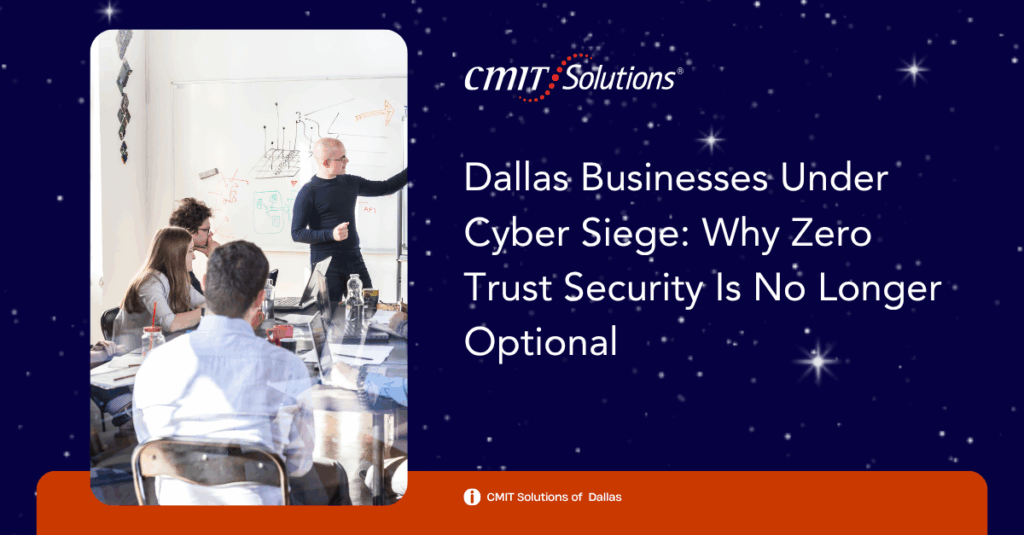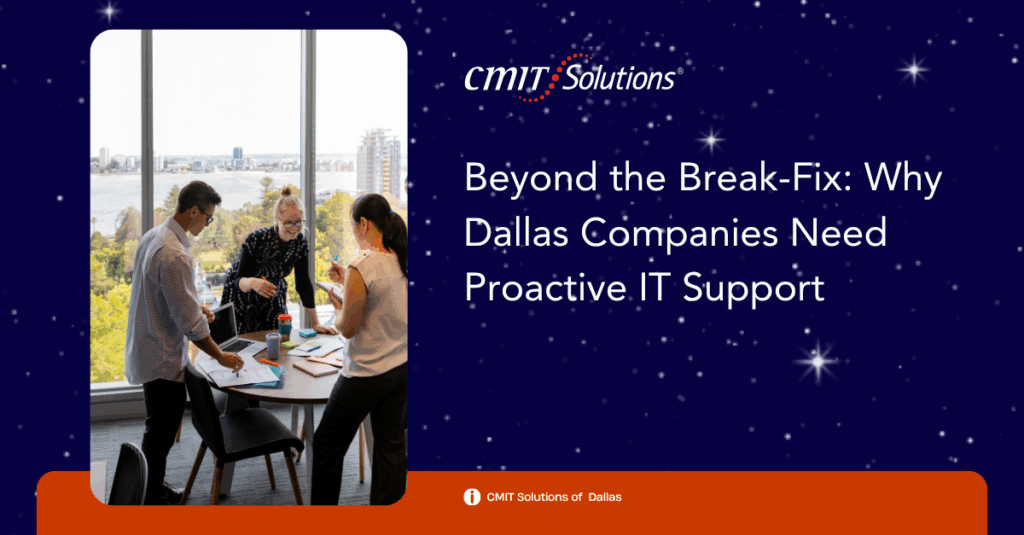The Rise of Smarter Phishing Attacks
In 2025, phishing attacks have evolved beyond simplistic emails asking users to click on shady links. Cybercriminals now use artificial intelligence (AI), behavioral data, and social engineering to craft highly convincing scams. For businesses in Dallas, this evolution poses a significant risk: a single phishing email can compromise entire networks, expose sensitive customer data, or cripple operations with ransomware.
As Dallas businesses grow more reliant on digital infrastructure and hybrid workforces, the threat of smarter phishing attacks continues to rise. This is why cybersecurity can no longer be a back-burner issue. Instead, it demands proactive strategies built on zero trust architecture, employee education, secure communication tools, and intelligent IT support.
How Phishing Scams Have Evolved
Gone are the days of poorly written scam emails. Today’s phishing campaigns are:
- AI-powered: Using tools like ChatGPT clones to draft believable emails.
- Multi-channel: Deployed via email, SMS (smishing), and voice calls (vishing).
- Contextualized: Tailored to industries, job roles, and even current projects.
The rise of shadow AI, where employees unknowingly use unauthorized apps, further expands the threat surface. In fact, CMIT Solutions of Dallas has seen cases where phishing emails mimicked internal project discussions, leading to unauthorized wire transfers and data breaches.
Why Dallas Businesses Are Prime Targets
Dallas is a booming tech and commerce hub. Its diverse business ecosystem — from healthcare and finance to legal firms and startups — makes it a fertile ground for cybercriminals. Many businesses operate with legacy systems or reactive IT support, leaving them vulnerable to cloud misconfigurations, weak password hygiene, and untrained staff using unsecured devices.
Add in the surge of hybrid work and it’s no surprise that phishing attacks are soaring.
Emerging Threats: Business Email Compromise on the Rise
While phishing remains a top threat, Business Email Compromise (BEC) is rapidly becoming one of the most financially damaging cyberattacks. Unlike traditional phishing, BEC involves a hacker gaining access to a legitimate business email account—usually through a phishing scheme—and then using it to defraud the company. These emails often look authentic because they come from a trusted address and may include real conversations, making them extremely difficult to spot.
According to recent security reports, BEC attacks have resulted in billions of dollars in losses globally, and Dallas—home to a dense mix of industries and executive leadership—is seeing a rise in such incidents. These attacks often target finance departments with fraudulent invoice requests, or trick employees into updating banking details for payroll transfers.
To combat this, Dallas businesses must strengthen their email authentication protocols using SPF, DKIM, and DMARC. These tools validate incoming and outgoing email traffic, reducing spoofing risks. Additionally, employee awareness is critical—staff should always verify high-stakes requests through alternate channels.
Regular audits of account permissions, multi-factor authentication (MFA), and endpoint detection solutions can significantly reduce exposure to BEC schemes. Partnering with an experienced provider of proactive IT support ensures ongoing monitoring and rapid response in the event of suspicious behavior.
Smart Strategies to Outsmart Phishing
1. Embrace Zero Trust Security
The traditional perimeter-based model is outdated. Dallas companies should transition to a zero trust model, where no user or device is automatically trusted. Access is granted based on roles, context, and verification.
2. Deploy Proactive IT Support
Instead of reacting to incidents, Dallas companies should opt for proactive IT support. This includes 24/7 network monitoring, threat detection, and regular security audits.
3. Train Your Team Continuously
Human error is the weakest link in cybersecurity. Regular employee training should cover email threats, safe browsing, and phishing awareness. Many AI-powered productivity tools include security prompts and risk indicators to help users in real time.
4. Modernize Cloud and Network Infrastructure
Using outdated infrastructure is risky. Hybrid cloud strategies with intelligent routing, multi-factor authentication, and network segmentation can drastically reduce attack surfaces.
Also consider intelligent network management to keep your systems connected and secure.
5. Automate Compliance and Governance
Regulatory compliance isn’t just about avoiding fines. Dallas companies can automate oversight using compliance governance tools that alert you in real-time.
6. Back Up Like Your Business Depends On It
Because it does. If a phishing attack leads to ransomware, a ransomware-proof backup plan could be your only lifeline to recover without paying a ransom.
Tools That Strengthen Phishing Defense
- UCaaS solutions encrypt team communications and verify identities.
- Strategic tech guidance helps align your digital roadmap with risk management.
- Adopt smarter procurement strategies to avoid tools with known vulnerabilities.
- Build your stack with custom IT packages for maximum security.
- Stay current on IT trends to keep your team ahead of cybercriminals.
The Role of Unified Security Policies Across Departments
To truly defend against phishing, businesses must unify security policies across departments. Sales teams, HR, finance, and operations often use different platforms and workflows, which creates blind spots for attackers to exploit.
Integrating centralized access controls, shared compliance dashboards, and organization-wide security frameworks reduces this fragmentation. Leaders should prioritize platforms that allow for policy-based access while enabling interdepartmental collaboration. IT guidance and customized compliance solutions ensure each team aligns to best practices without bottlenecks.
Consider conducting periodic security drills that involve cross-functional staff to identify potential vulnerabilities from overlooked angles. A culture of shared responsibility helps ensure phishing threats are addressed holistically.
Staying Ahead in the Cybersecurity Race
Phishing attacks are a moving target. While technical defenses like firewalls, email filtering, and multifactor authentication are vital, they alone are not enough. Dallas businesses need to treat cybersecurity as a dynamic, business-critical investment. That means staying vigilant about evolving attack methods and continuously refining their security posture with tools like endpoint detection and behavior-based analytics.
Equally important is fostering a company-wide security culture. This involves more than annual training sessions; it requires integrating security into every process and platform your teams use. For instance, updating software before vulnerabilities are exploited is just as critical as having backups. Leaders must champion regular risk assessments and simulate phishing tests to keep employees sharp and systems ready.
Finally, businesses should prepare for what’s ahead. Start by updating your systems before Windows 10 support ends. Assess whether your current infrastructure is compatible with today’s cybersecurity demands. And remember, legacy cybersecurity rules need to be replaced by modern strategies that are responsive, resilient, and designed to scale with your growth.
Final Thoughts: Build Smarter Defenses Now
Outsmarting smarter phishing attacks requires layered defense, employee vigilance, and technology that evolves with threats. Use Microsoft AI responsibly and avoid becoming a victim of shadow AI.
Let Dallas’ tech future be built on smarter, not just faster, infrastructure.







